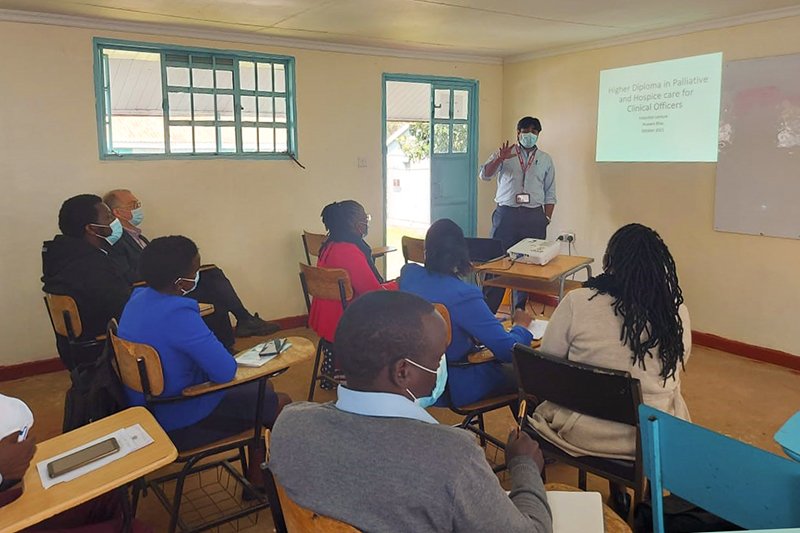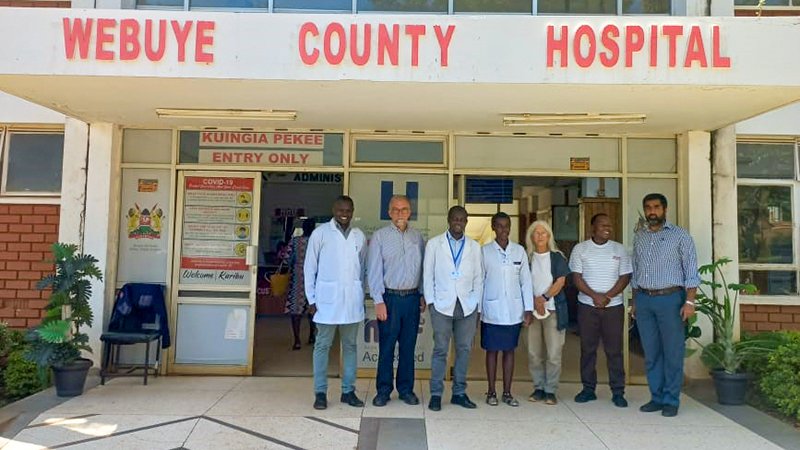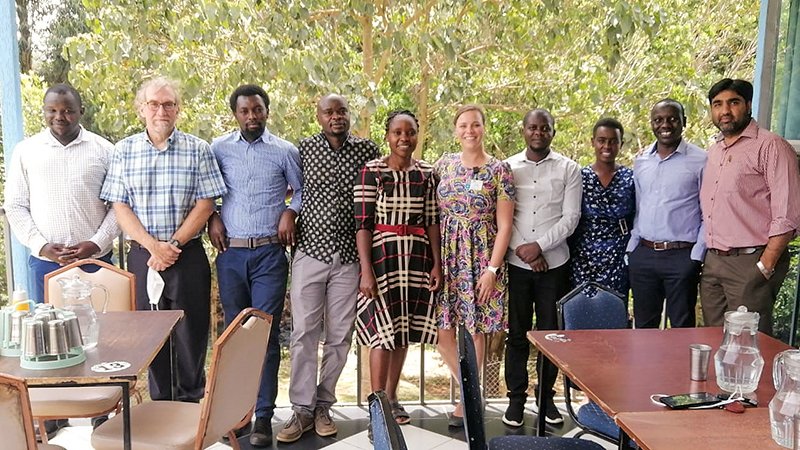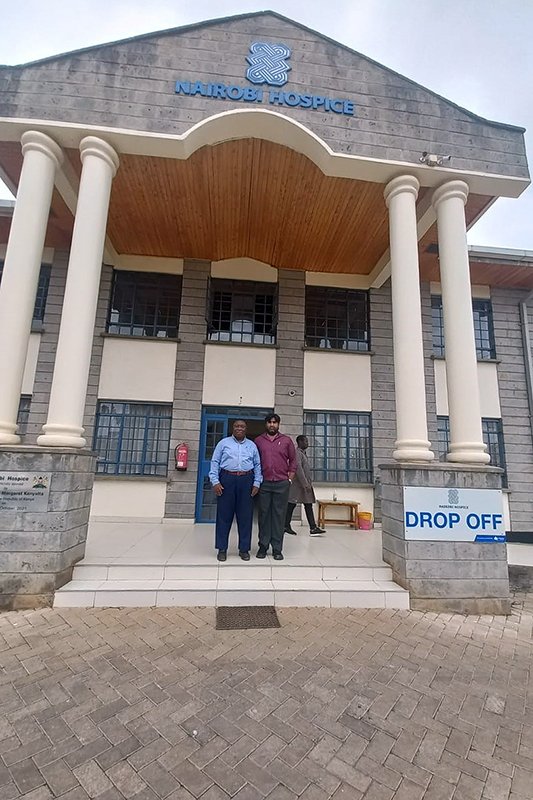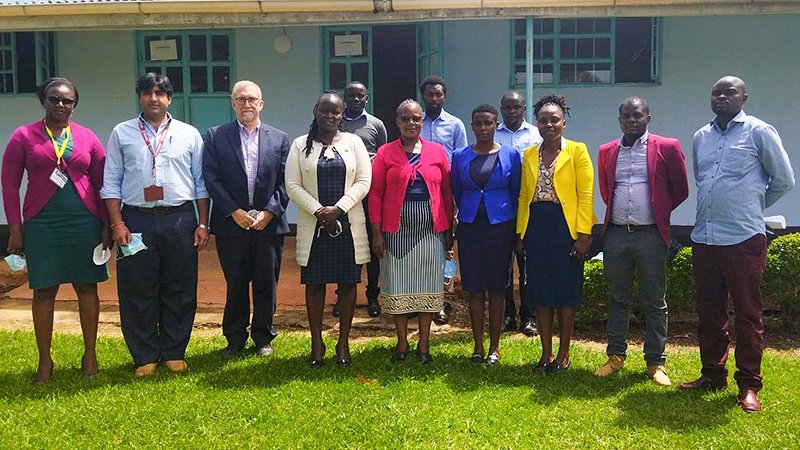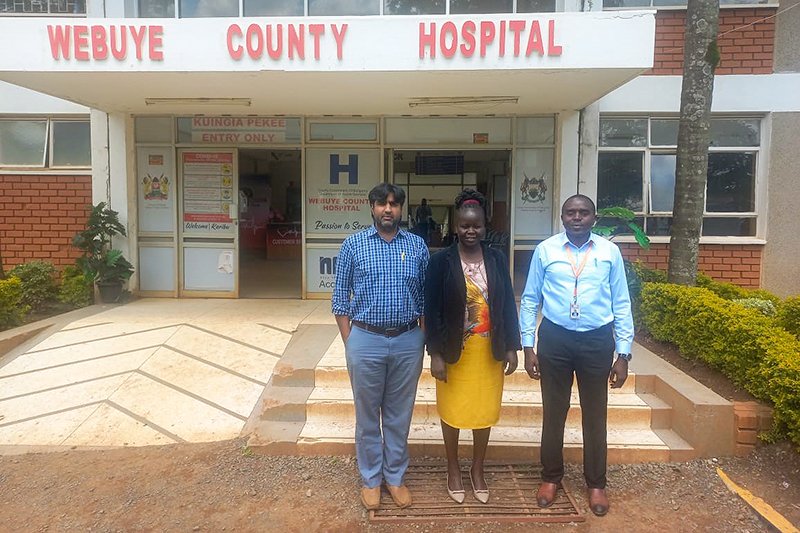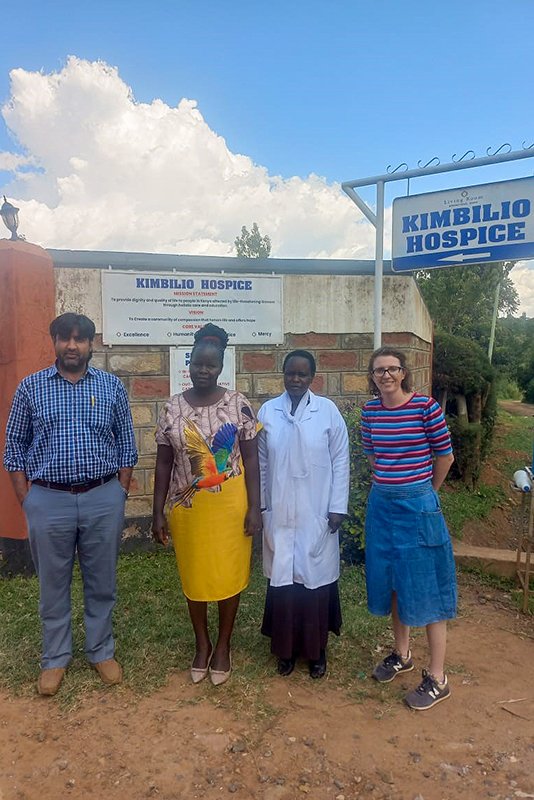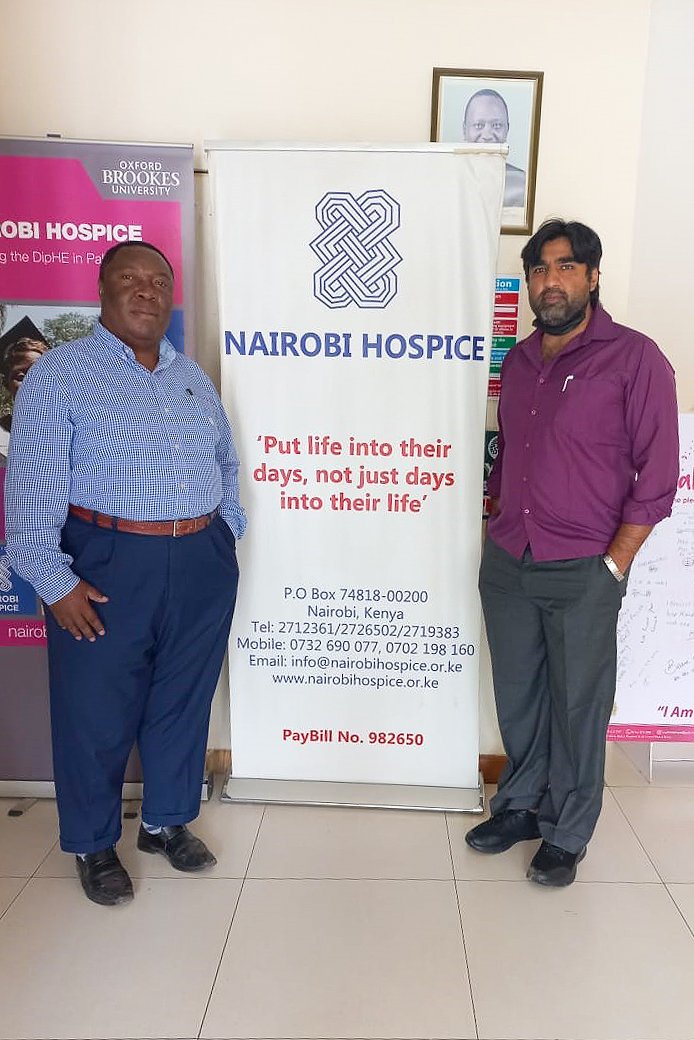Palliative Care Program Meets Milestones in Kenya
In Kenya, multiple levels of palliative care are still in need of development. Out of the estimated 800,000 Kenyans in need of palliative care, just 15,000 patients receive services annually. At AMPATH, a Palliative Care Centre of Excellence in Kenya is the ultimate goal; but first, Hussein Elias, MD, and his team have launched successful community engagement programs and continuous medical education for caregivers.
Dr. Elias leading the induction lecture
Dr. Elias is the coordinator of clinical palliative care at Moi Teaching & Referral Hospital (MTRH) and leads Kenya’s first higher diploma program in palliative care for clinical officers at MTRH College. With mentorship from Ken Cornetta, MD, at Indiana University School of Medicine, Dr. Elias’ team has established integrated palliative care programs across AMPATH, but he says, “the efforts are still ongoing.”
“One of the challenges that we still face here is that palliative care is still considered as a new concept or it's associated with cancer and end-of-life, but there is more to it,” Dr. Elias said.
Palliative care aims to provide symptom relief and comfort for patients with serious and complex illnesses at any stage of their ongoing condition. Though this can include cancer, Dr. Elias wants to bring awareness that palliative care can be provided for other chronic diseases, such as dementia and HIV. “With the rising burden, there's always a need, and often requirement, for palliative care,” he said.
In October 2021, the Ministry of Health in Kenya released landmark guidelines for the country’s first palliative care policy, coinciding with MTRH’s milestone higher diploma in palliative care for clinical officers. Six years before the policy’s release, only one physician was registered as a palliative care provider, and accredited nurses, clinical officers, and specialists were completely lacking in the field. According to Dr. Elias, this lack of palliative care workers persists.
Dr. Elias’ work aligns with the official palliative care policy for 2021-2030, which prioritized creating awareness of palliative care in communities, promoting accessibility to these services, and developing and training a larger palliative care workforce. One of their most impactful examples is the clinical officer training in palliative care, the first of its kind in Africa.
Palliative care students
“[In] our efforts to improve or increase the palliative care workforce, we developed clinical training for clinical officers,” Dr. Elias explained.
Now, the first cohort of seven students is preparing to take their final exam next month, and they are each working on the research component of the degree program. “We're hoping to see how we can support them best, so all of this research can get published,” Dr. Elias said.
In February, Dr. Elias’ team published a tele-based hospice study in the Journal of Pain Symptom Management. The pilot study enrolled thirty patients in western Kenya with advanced cancer, who were no longer able to receive chemotherapy. The research team provided patients and their families “comfort packs” filled with six medicines commonly used at the end of life to relieve pain. Over eight weeks, the research team monitored patients and their families over the phone, including providing education for the family caretakers using the comfort pack medications.
“What we reported was 100 percent patient and family participation. So it was way above our aim,” Dr Elias continued. “Patients are able to share feelings with their family, and also we noted that families reported that they were more confident in providing care to the patients.”
Other impacts from the palliative care program include training for community health volunteers in western Kenya and training opportunities through the Project ECHO learning facilities. In 2018, only three percent of health facilities in Kenya offered palliative care services. These health facilities are often based in urban centers, although many patients in need of palliative care live in rural communities. Therefore, community engagement has been a critical step for improving access to palliative care across communities.
Ten training sessions were held for community health volunteers in Webuye, Kimbilio (Kipkaren), and Ziwa, each lasting three days and followed up by a month of mentorship. “The training covered the basics of palliative care, including patient assessment, recommendations, and a linkage between the palliative care providers within the region,” Dr. Elias explained.
Within the first four weeks after the training, over 1,000 patients were seen by the 105 trained volunteers.
Dr. Elias said that this type of community linkage is “an ongoing process,” but positive community impacts continue to be present across patient populations. A full year after these training sessions, 79 community health volunteers participated in a knowledge assessment and interview project. They showed overall improvement in all key domains of palliative care: symptom assessment, nursing care, and bereavement support.
Monthly ECHO programs with up to forty participants per session also “helped us to create a network between the facilities and through this we also have been able to have a good collaborative network, where we are able to discuss and even refer patients to each other for care,” Dr. Elias said. The program has been running for almost two years.
Moving forward, Dr. Elias’ team hopes to receive approval for a clinical fellowship program in palliative medicine at Moi University and establish an inpatient and outpatient palliative care center within district hospitals, which could also be host centers for training and community engagement.
These successful programs have already made a great impact on the field of palliative care in Kenya, and with the support of multiple stakeholders through the AMPATH partnership, Dr. Elias’ team is continually moving forward with the priorities of service delivery, education, and advocacy in mind. The AMPATH partnership provides a platform to support the various dimensions of this work.
In response to Dr. Elias’ presentation of his work at the AMPATH Global Oncology Seminar series, many participants showed great curiosity and interest in the Kenyan palliative care program. “It underscores the tremendous value that these healthcare workers offer in a variety of different areas,” said one participant.
“I think of it just as a good reminder of the importance of thinking about basic and helpful needs of people in these situations,” added another audience member.
Challenges continue in addressing the workforce gap in palliative care services and access to hospice centers in rural areas across Kenya. Yet, Dr. Elias and his team have developed an impactful program of palliative care so far, and their potential continues to grow.

